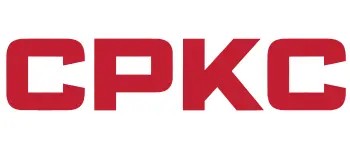True North, Strong & Stable: Canada’s Blue Chip Powerhouses
Key takeaways
Stability and Long-Term Growth: Canadian blue-chip stocks like RBC, CN Rail, and TC Energy offer strong financial stability, making them reliable choices for long-term investors.
Diversification Across Sectors: These top companies span banking, infrastructure, real estate, and technology, allowing investors to gain exposure to multiple industries with proven business models.
Reliable Dividend Income: Many blue-chip stocks, including TC Energy and CAPREIT, provide consistent dividends, making them attractive for income-focused investors seeking steady returns.
3 stocks I like better than the ones on this list.A “blue-chip” stock is often a well-established company that has been financially sound for decades. This differs from growth stocks, as an investment in them often depends on the company’s growth potential, not its previous results and can have extensive price swings over the long term.
Did you know that the term blue chip, when it comes to the stock market, is derived from the game of poker?
Typically, blue chips held the highest value and, as such, were the most important to keep in your stack.
A common misconception with blue-chip stocks
Investors frequently associate blue-chip Canadian stocks with the top Canadian dividend stocks. However, this connection is not always accurate.
Many of the best blue-chip stocks in the country either pay a small dividend or no dividend at all. So, if you’re looking for blue-chips in Canada and you’ve isolated your shortlist out to income payers, you are likely missing out on some of the best performing stocks in the country over the last decade.
In this article, I’m going to go over some of the top blue-chips in Canada with a strict focus on company quality, not dividends. Is a well-covered dividend taken into consideration? Absolutely. After all, dividends do make up a portion of total return.
Lets get right into the list. Of note, this list is in no particular order.
What are the 10 best Canadian blue chip stocks?
Global leader in alternative asset management
Brookfield Corporation (TSX:BN)

Brookfield Corporation is a powerhouse in asset management, overseeing investments across real estate, infrastructure, renewable energy, and private equity. With operations spanning the globe, Brookfield generates stable cash flows through long-term contracts and fee-based revenue. The company also owns a stake in Brookfield Asset Management (BAM), its publicly traded asset management arm.
P/E: 184.5
5 Yr Revenue Growth: 4.9%
5 Yr Earnings Growth: -29.1%
5 Yr Dividend Growth: -5.6%
Yield: 0.6%
Leading North American railway with international reach
Canadian Pacific Kansas City (TSX:CP)

CPKC is a top-tier railway company connecting Canada, the U.S., and Mexico, providing efficient transportation for commodities, energy products, and consumer goods. The 2023 acquisition of Kansas City Southern made CP the first railway spanning all three North American countries, enhancing trade and freight efficiency.
P/E: 25.4
5 Yr Revenue Growth: 12.6%
5 Yr Earnings Growth: 1.9%
5 Yr Dividend Growth: 3.2%
Yield: 0.7%
E-commerce technology leader
Shopify (TSX:SHOP)

Shopify provides cloud-based e-commerce solutions for businesses of all sizes, helping them set up and manage online stores. It has become one of the most important global e-commerce infrastructure players, providing payment processing, logistics, and marketing solutions.
P/E: 63.7
5 Yr Revenue Growth: 41.3%
5 Yr Earnings Growth: -%
5 Yr Dividend Growth: -%
Yield: -%
Related
Top Canadian Stocks to Buy

Leading Canadian grocery and pharmacy retailer
Metro (TSX:MRU)

Metro is one of Canada’s largest grocery and pharmacy chains, operating under brands like Metro, Super C, and Jean Coutu. With a defensive business model, Metro provides consistent revenue and cash flow, even during economic downturns.
P/E: 23.7
5 Yr Revenue Growth: 4.8%
5 Yr Earnings Growth: 8.1%
5 Yr Dividend Growth: 10.9%
Yield: 1.3%
Leading North American utility company
Fortis (TSX:FTS)

Fortis is a top utility provider in Canada and the U.S., supplying electricity and natural gas to millions of customers. With a focus on long-term regulated assets, Fortis generates stable cash flow and is a top choice for dividend investors.
P/E: 20.5
5 Yr Revenue Growth: 4.9%
5 Yr Earnings Growth: -3.7%
5 Yr Dividend Growth: 4.8%
Yield: 3.6%
Canada’s largest bank by market capitalization
Royal Bank of Canada (TSX:RY)

Royal Bank of Canada (RBC) is Canada’s largest and most valuable bank, offering a full range of financial services, including retail and commercial banking, wealth management, insurance, and capital markets. With operations in over 30 countries, RBC is a global financial powerhouse, known for its stability, strong profitability, and consistent dividend payments.
P/E: 13.6
5 Yr Revenue Growth: 4.2%
5 Yr Earnings Growth: 4.7%
5 Yr Dividend Growth: 6.1%
Yield: 3.4%
Leading North American freight railway operator
Canadian National Railway (TSX:CNR)

Canadian National Railway (CN Rail) operates one of North America’s largest freight rail networks, spanning Canada and the U.S. The company plays a crucial role in transporting goods, including energy, agriculture, and consumer products. CN’s efficient railway operations make it a key player in North American supply chains.
P/E: 19.6
5 Yr Revenue Growth: 2.7%
5 Yr Earnings Growth: 3.8%
5 Yr Dividend Growth: 9.5%
Yield: 2.4%
Related
Top Canadian Growth ETFs

Global leader in acquiring and managing software businesses
Constellation Software (TSX:CSU)

Constellation Software is a Canadian tech giant specializing in acquiring and operating niche software businesses across various industries. Rather than developing its own software, Constellation focuses on acquiring and optimizing existing businesses, ensuring steady revenue growth and strong cash flow generation.
P/E: 106.5
5 Yr Revenue Growth: 24.4%
5 Yr Earnings Growth: 17.7%
5 Yr Dividend Growth: 0.6%
Yield: 0.1%
Major North American pipeline and energy infrastructure company
TC Energy (TSX:TRP)

TC Energy owns and operates extensive oil and natural gas pipeline networks across Canada, the U.S., and Mexico. The company also has a growing focus on power generation and energy storage solutions. With stable cash flows from long-term contracts, TC Energy is a favorite among income-focused investors.
P/E: 16.8
5 Yr Revenue Growth: 0.1%
5 Yr Earnings Growth: 0.1%
5 Yr Dividend Growth: 3.6%
Yield: 5.1%
Canada’s largest residential real estate investment trust (REIT)
Canadian Apartment Properties REIT (TSX:CAR.UN)

Canadian Apartment Properties REIT (CAPREIT) owns and manages a diverse portfolio of rental properties, including apartments, townhomes, and manufactured housing communities across Canada and parts of Europe. With rising rental demand and a supply shortage, CAPREIT benefits from stable occupancy and consistent cash flow.
P/E: 25.2
5 Yr Revenue Growth: 7.3%
5 Yr Earnings Growth: -25.4%
5 Yr Dividend Growth: 1.4%
Yield: 3.4%
What are Canadian blue chip stocks?
My definition of a blue chip stock is that it has a large market capitalization and is a top company in its industry.
Typically, I look for high-quality stocks that are within the top two in terms of performance in the sector, but industries like Canadian banking can have many stocks I consider blue chip even if they aren’t a front runner.
In this article, I have tried to focus one one or two companies from a particular sector, max. This way, this list doesn’t get filled with Canadian bank stocks and oil producers.
Blue chip stocks are often the backbone of an investor’s portfolio and are held for the long term. The majority of my blue-chip investments are made with the mentality to simply buy and never sell.
Obviously this is dependent on the overall investment thesis of the blue-chip stock being maintained. However, because these companies have provided such stable operations for decades and have such wide economic moats, the underlying thesis of these companies rarely changes.
Investors, especially those just learning how to buy stocks in Canada, should make high-quality blue-chip stocks their primary focus.
They provide long-term stability and usually (but not always, like I stated above) an excellent dividend.

